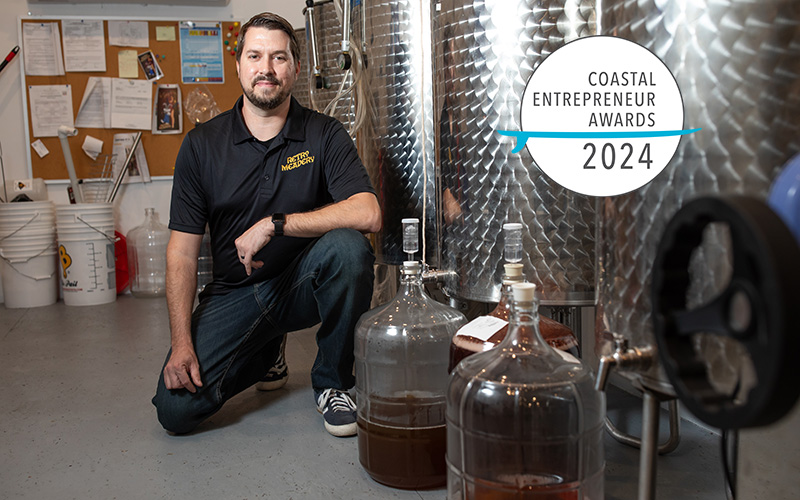Pending national settlements of multistate lawsuits involving drug manufacturers and distributors accused of fueling the opioids crisis will provide New Hanover County with $19 million-$20 million and the city of Wilmington $850,000, to be used in the ongoing fight to tame the epidemic.
The figures, subject to change, are based on estimates provided by the county and in a Memorandum of Agreement between N.C. Attorney General Josh Stein and the N.C. Association of County Commissioners.
An April 30 statement from Stein and the association said the potential settlements and resolutions could bring as much as $850 million to North Carolina over an 18-year period, during which counties and municipalities would receive periodic payments.
The payouts would encompass settlements involving drug distributors Cardinal, McKesson and AmerisourceBergen and opioid manufacturers Johnson & Johnson and Purdue Pharma, the latter in bankruptcy proceedings.
In addition to the five-company settlement, the attorney general’s office also participated in a $573 million multistate settlement in February with McKinsey & Company, a management consulting firm that “advised Purdue on how to maximize profits from its opioid products, including targeting high-volume opioid prescribers,” Stein and other attorneys general alleged.
North Carolina is expected to receive $18.9 million over five years as a result of the McKinsey settlement, Stein’s office said, but no figures were available at press time regarding how much money jurisdictions in the tri-county area would receive.
While 76 counties and eight municipalities are engaged in litigation with or investigations of opioid manufacturers and distributors, all of the state’s 100 counties, along with large- and medium-size municipalities, now have the opportunity to sign on to the five-company agreement by Oct. 1 or risk being stuck with an inferior deal, said Kevin Leonard, executive director of the county commissioners group.
“We anticipate that the default arrangement in the national settlement agreements would provide as little as 15% of state settlement funds in direct payments to local governments and a substantially worse arrangement for local governments than the NC MOA offers,” Leonard told the Business Journal.
To date, a total of 36 counties and 10 municipalities have signed on, he said.
Commissioners in New Hanover County signed on to the accord at their June 22 meeting while the city of Wilmington, Brunswick County and Pender County are not yet signatories.
“The best estimate currently is that New Hanover County would receive about $19 million over 18 years” from the $850 million settlement, said Jessica Loeper, chief communications officer for the county.
New Hanover’s allocation within the statewide fund stands at 2.897%, she said.
The city of Wilmington’s share currently stands at about $850,000, or 0.119%.
“The formula is derived directly from the allocation model developed at the national level by experts retained by the outside counsel for local governments,” Leonard said.
On Monday, members of Wilmington’s city council met in private with the city attorney to discuss “opioid legislation,” according to a public agenda from the city, but took no formal vote to sign off on any financial arrangement.
“During the closed session, City Council provided direction to the City Attorney concerning national opioids litigation. No other action was taken,” said city communications director Jerod Patterson.
Signing on to the agreement binds participants to the governing rules set down by Stein and the association of counties regarding the use of settlement proceeds, with jurisdictions given two primary options.
Under Option A, local governments may use proceeds to fund programs or services, among them evidence-based addiction treatment, naloxone distribution, recovery housing support, employment-related services, criminal justice diversion programs and at least a half-dozen other initiatives.
“They’re all proven strategies,” Leonard said.
Under Option B, jurisdictions may engage in a collaborative strategic planning process involving community stakeholders who would help formulate plans to address issues such as over-prescription or misuse of opioids, support for first responders, connections to care and many other issues.
Under this second option “you get more freedom or flexibility in how to use your funds if you show and demonstrate a collaborative process that brings all of those people to the table,” Leonard explained.
“You’re not locked into choosing A or B. It can be A and B,” he added.
Prior to the spike in behavioral health problems that arose during the pandemic, opioid overdoses in New Hanover County increased by 50% from 2019 to 2020, county commissioners chair Julia Olson-Boseman said.
Olson-Boseman has said the county will “work collaboratively” with the city of Wilmington to ensure that funding derived from recent legal settlements “serves those who need it most.”
Loeper said that any money received from legal settlements would be held separately from a multimillion-dollar fund created as a result of the county’s sale of New Hanover Regional Medical Center to Novant Health.
“Any opioid settlement funds would not be placed in the same fund as the $50 million Mental Health and Substance Use Disorder Funds, and they would remain separated from the overall general fund,” Loeper said.
“Nothing can bring back the people we have lost, the families that have been torn apart by addiction or the burdens that have been borne because of the opioid epidemic,” Olson-Boseman said. “But we will work tirelessly to emerge from this with better resources, greater access to treatment and recovery and more tools to prevent overdoses and save lives.”


